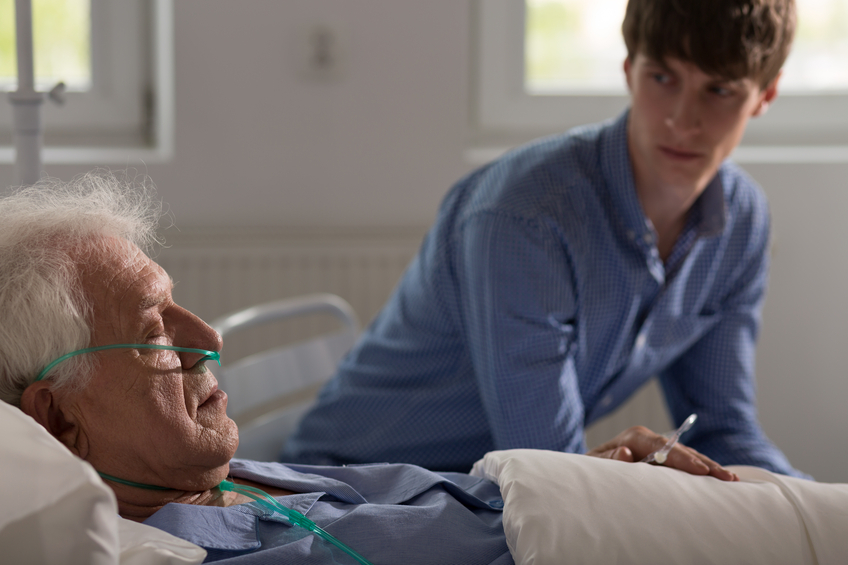
Many dying gay people face “significant barriers” to accessing end-of-life care, a new report has found.
Some lesbian, gay, bisexual and transgender (LGBT) people fear they will be discriminated against by healthcare workers, according to the Marie Curie report Hiding Who I Am.
These fears are “not unwarranted”, the authors said, as they outlined cases of discrimination including one instance where a doctor would not treat a lesbian without a chaperone.
They also outlined other issues such as dying people having to “come out” to each new healthcare worker they met.
Writing the foreword for the report, broadcaster Sandi Toksvig said: “Discrimination has no place in the NHS or social care services, but it is especially unwelcome when someone is at the end of life. This is a time when people should be able to be who they are, with the people that mean the most to them in their life.
“Prejudice and discrimination at the end of life have a devastating impact on LGBT people. At its very worst, it means someone will spend their last days feeling isolated, alone, angry and unwelcome. For those who lose a loved one, not being able to say goodbye in a respectful and peaceful environment can make grief and bereavement that much harder to bear.”
The report highlights a small poll of 237 LGBT people which found three-quarters were not confident that health and social care services provide them sensitive end-of-life care.
One in four said they had experienced discrimination from health and social care professionals at some point in their lifetime.
The charity said as a result, many people delay accessing the care they need and are more likely to experience unmanaged symptoms and pain at the end of their lives.
Scott Sinclair, head of policy and public affairs for England at Marie Curie, said: “No-one should have to hide who they are at the end of their lives. If LGBT people are not confident about services, or have experienced discrimination from healthcare providers in the past, they may not feel able to be open about themselves and the people who are important to them – factors that are all crucial to dying well.”
“Learning about the prejudice LGBT people experience as they are dying, when they are at their most vulnerable, is deeply saddening.”
Hannah Kibirige, head of policy at campaign group Stonewall, said: “Lesbian, gay, bi and trans people in later life often experience specific forms of discrimination that go unnoticed by others around them.
“Often older LGBT people are extremely vulnerable, particular if in care or terminally ill, and so it’s vital that healthcare staff are aware of the experiences they face. It is a great step to see Marie Curie address this in their research and we hope that the findings go on to effect practical and positive change for lesbian, gay, bi and trans people.”
READ MORE
Church of Scotland is to approve gay marriage for ministers
‘One of the most important decisions of my life’: Scottish Secretary David Mundell announces he is gay

Enjoy the convenience of having The Sunday Post delivered as a digital ePaper straight to your smartphone, tablet or computer.
Subscribe for only £5.49 a month and enjoy all the benefits of the printed paper as a digital replica.
Subscribe